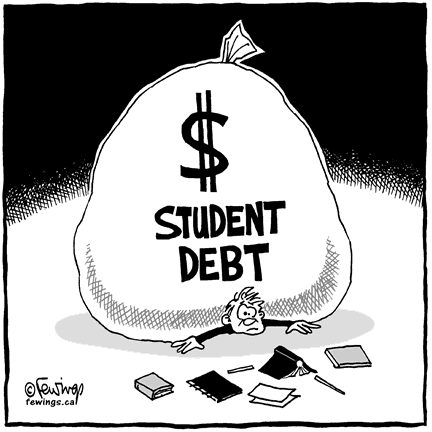 I've written a number of pieces that make the case that America is in its decline and fall, exacerbated greatly by the Obama Administration and others in the Hard Left. I'll post links to those articles at the end of the following essay.This essay makes a different set of arguments for why current American policy and media-perpetrated values are disastrous.
I've written a number of pieces that make the case that America is in its decline and fall, exacerbated greatly by the Obama Administration and others in the Hard Left. I'll post links to those articles at the end of the following essay.This essay makes a different set of arguments for why current American policy and media-perpetrated values are disastrous.
As we enter election season, I believe this essay and mine should be kept in mind as you decide whether to vote Democrat, Republican, or Libertarian.
I'm 63 and I'm Tired
by Robert A. Hall
Except for one semester in college when jobs were scarce and a six-month period when I was between jobs but job-hunting every day, I've worked hard since I was 18. Despite some health challenges, I still put in 50-hour weeks and haven't called in sick in seven or eight years. I make a good salary but I didn't inherit my job or my income and I worked to get where I am. Given the economy, there's no retirement in sight and I'm tired. Very tired.
I'm tired of being told I have to "spread the wealth" to people who don't have my work ethic. I'm tired of being told the government will take the money I earned, by force if necessary, and give it to people too lazy to earn it.
I'm tired of being told I have to pay more taxes to "keep people in their homes." Sure, if they lost their jobs or got sick, I'm willing to help. But not if they bought McMansions at three times the price of our paid-off, $250,000 condo, on one-third of my salary, then let the left-wing Congress-critters who passed Fannie and Freddie and the Community Reinvestment Act create a bubble and a response to it that bails them out with my money.
I'm tired of being told how bad America is by left-wing millionaires like Michael Moore, George Soros and Hollywood Entertainers who live in luxury because of the opportunities America offers. In 30 years, if they get their way, the United States will have the economy of Zimbabwe , the freedom of the press of China , the crime and violence of Mexico , the tolerance for Christian people of Iran , and the freedom of speech of Venezuela
I'm tired of being told that Islam is a "Religion of Peace," when every day I can read dozens of stories of Muslim men killing their sisters, wives and daughters for their family "honor"; of Muslims rioting over some slight offense; of Muslims murdering Christian and Jews because they aren't "believers"; of Muslims burning schools for girls; of Muslims stoning teenage rape victims to death for "adultery"; of Muslims mutilating the genitals of little girls; all in the name of Allah, because the Qur'an and Shari'a law tells them to.
I'm tired of being told that "race doesn't matter" in the post-racial world of Obama, when it's all that matters in affirmative action jobs, lower college admission and graduation standards for minorities (harming them the most), government contract set-asides, tolerance for the ghetto culture of violence and fatherless children that hurts minorities more than anyone, and in the appointment of U.S. Senators from Illinois.
I think it's very cool that we have a black president and that a black child is doing her homework at the desk where Lincoln wrote the Emancipation Proclamation. I just wish the black president was Condi Rice, or someone who believes more in freedom and the individual and less arrogantly of an all-knowing government.
I'm tired of a news media that thinks Bush's fundraising and inaugural expenses were obscene, but think Obama's, at triple the cost, were wonderful; that thinks Bush exercising daily was a waste of presidential time, but Obama exercising is a great example for the public to control weight and stress; that picked over every line of Bush's military records, but never demanded that Kerry release his; that slammed Palin, with two years as governor, for being too inexperienced for VP, but touted Obama with three years as senator as potentially the best president ever. Wonder why people are dropping their subscriptions or switching to Fox News? Get a clue. I didn't vote for Bush in 2000, but the media and Kerry drove me to his camp in 2004.
I'm tired of being told that out of "tolerance for other cultures" we must let Saudi Arabia use our oil money to fund mosques and mandrassa Islamic schools to preach hate in America , while no American group is allowed to fund a church, synagogue or religious school in Saudi Arabia to teach love and tolerance.
I'm tired of being told I must lower my living standard to fight global warming, which no one is allowed to debate. My wife and I live in a two-bedroom apartment and carpool together five miles to our jobs. We also own a three-bedroom condo where our daughter and granddaughter live. Our carbon footprint is about 5% of Al Gore's, and if you're greener than Gore, you're green enough.
I'm tired of being told that drug addicts have a disease, and I must help support and treat them, and pay for the damage they do. Did a giant germ rush out of a dark alley, grab them and stuff white powder up their noses while they tried to fight it off? I don't think Gay people choose to be Gay but I damn sure think druggies chose to take drugs. And I'm tired of harassment from cool people treating me like a freak when I tell them I never tried marijuana.
I'm tired of illegal aliens being called "undocumented workers," especially the ones who aren't working, but are living on welfare or crime. What's next? Calling drug dealers, "Undocumented Pharmacists"? And, no, I'm not against Hispanics. Most of them are Catholic, and it's been a few hundred years since Catholics wanted to kill me for my religion. I'm willing to fast track for citizenship any Hispanic person, who can speak English, doesn't have a criminal record and who is self-supporting without family on welfare, or who serves honorably for three years in our military. Those are the citizens we need.
I'm tired of latte liberals and journalists trashing our military (
MN: with the obligatory throw-away line about how wonderful our men and women in uniform are,) who would never wear the uniform of the Republic themselves or let their entitlement-handicapped kids near a recruiting station, They and their kids can sit at home, never having to make split-second decisions under life and death circumstances, and bad-mouth better people than themselves.. Do bad things happen in war? You bet. Do our troops sometimes misbehave? Sure. Does this compare with the atrocities that were the policy of our enemies for the last fifty years and still are? Not even close. So here's the deal. I'll let myself be subjected to all the humiliation and abuse that was heaped on terrorists at Abu Ghraib or Gitmo if the critics would let themselves be subject to captivity by the Muslims, who tortured and beheaded Daniel Pearl in Pakistan, or the Muslims who tortured and murdered Marine Lt. Col. William Higgins in Lebanon, or the Muslims who ran the blood-spattered Al Qaeda torture rooms our troops found in Iraq, or the Muslims who cut off the heads of schoolgirls in Indonesia, because the girls were Christian. Then we'll compare notes. British and American soldiers are the only troops in history that civilians came to for help and handouts, instead of hiding from in fear.
I'm tired of people telling me that their party has a corner on virtue and the other party has a corner on corruption. Read the papers; bums are bipartisan. And I'm tired of people telling me we need bipartisanship. I live in Illinois, where the "Illinois Combine" of Democrats has worked to loot the public for years. Not to mention the tax cheats in Obama's cabinet.
I'm tired of hearing wealthy athletes, entertainers and politicians of both parties talking about innocent mistakes, stupid mistakes or youthful indiscretions, when we all know they think their only mistake was getting caught. I'm tired of people with a sense of entitlement, rich or poor.
Speaking of poor, I'm tired of hearing people with air-conditioned homes, color TVs and two cars called poor. The majority of Americans didn't have that in 1970 but we didn't know we were "poor." The poverty pimps have to keep changing the definition of poor to keep the dollars flowing.
I'm real tired of people who don't take responsibility for their lives and actions. I'm tired of hearing them blame the government, or discrimination, or big-whatever for their problems.
I'm damn tired. But I'm also glad to be 63. Because, mostly, I'm not going to have to see the world these people are making. I'm just sorry for my granddaughter.
* * * * *
Here are links to articles I've written that offer different reasons why America is in its decline and fall.What Happens After America's Decline and Fall
Why High U.S. Unemployment Will be Permanent
Why America is Dying...and What to Do About It


























